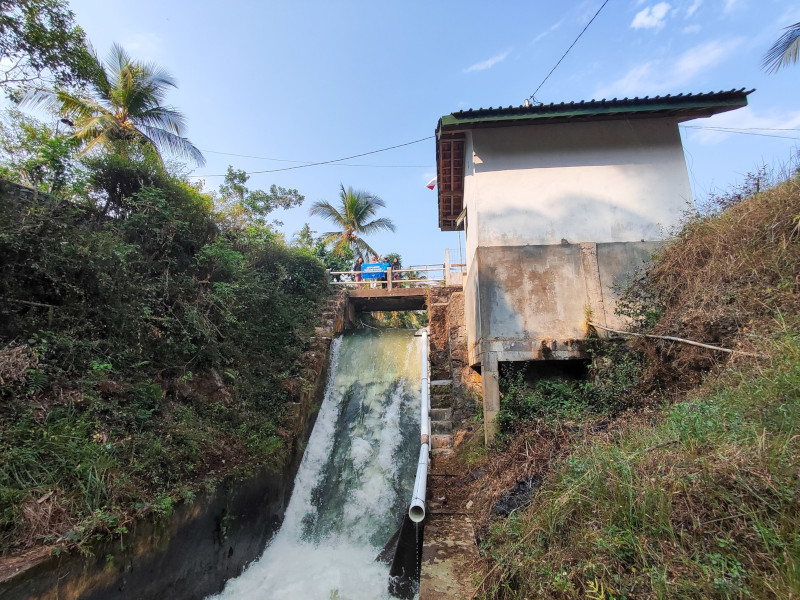350
How small-scale renewable energy projects are powering up rural communities in Indonesia
On the islands of Indonesia, many people live in scattered and remote communities. Over one-third of Indonesia’s population lives without access to electricity from a grid. Kerosene lamps are often used in homes, which are expensive and polluting.
Micro-hydro projects have become a popular alternative for electricity production, but a study by the German development agency (GTZ) showed that maintenance of these initiatives was a problem, with over 1000 micro-hydro plants being left abandoned.
Since the 1990s, the not-for-profit IBEKA, Institut Bisnis dan Ekonomi Kerakyatan, or People Centred Economic and Business Institute, has been supporting communities with mini-hydro and wind projects.
What sets these projects apart is that they are owned and managed by the communities. Surplus energy production is sold back to the grid, and local people are fully trained in how to operate and maintain the renewable energy equipment.
IBEKA has set up community projects in 82 villages across Indonesia and further afield in the Philippines and Rwanda. The micro-hydro and wind projects cut greenhouse gas emissions by replacing kerosene for lighting, with an off-grid estimate cut in carbon emissions of just under 6000 tonnes per year. Indonesia’s grid is heavily dependent on polluting coal and oil, it’s estimated that IBEKA’s grid-connected schemes cut carbon emissions by 1,700 tonnes per year.
The social and economic benefits of the projects are widespread too – electricity at night makes it easier for children to study and stops families from feeling isolated by providing increased access to information technology like mobile phones and radio. The electricity produced by the hydro and wind installations is much cheaper, and local jobs are created through the construction and maintenance of the equipment. There are also improved employment opportunities as locals can run electric tools, making it easier to expand carpentry and metal businesses. Agriculture and farming have also become more productive with renewable energy infrastructure, improving food security.
***
Visit IBEKA’s website

Small scale hydro-dam in Indonesia that IBEKA supported the local community to set up.

Small scale wind project in Indonesia that IBEKA supported the local community to set up.
“I can imagine if we have a just energy transition in place, we are going to have a very beautiful environment that we can inherit it to our future generation. And I hope we will do that by all means and at any cost. If we want to save this planet, we definitely need renewable energy.”
— Tri Mupini, Executive Director of IBEKA
More about the project
Credits
This video was produced by 350.org in collaboration with IBEKA – please credit Thomas Mendel/350.org.